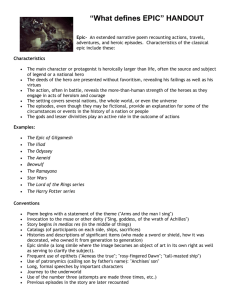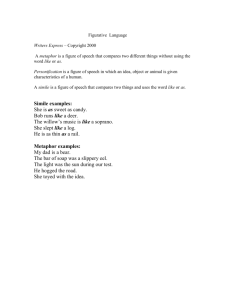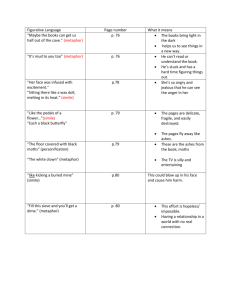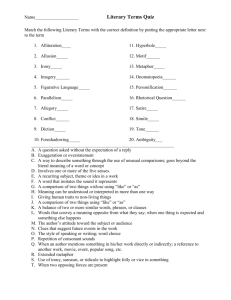The Odyssey Literary Terms Crossword Puzzle
advertisement
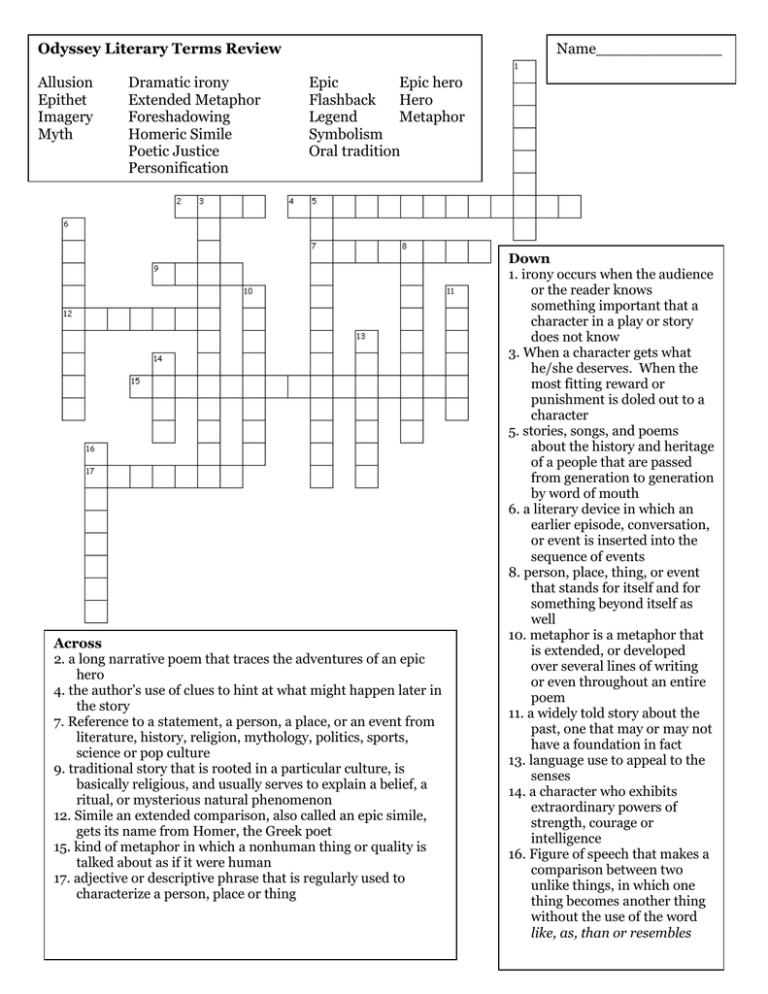
Odyssey Literary Terms Review Allusion Epithet Imagery Myth Dramatic irony Extended Metaphor Foreshadowing Homeric Simile Poetic Justice Personification Name_____________ Epic Epic hero Flashback Hero Legend Metaphor Symbolism Oral tradition Across 2. a long narrative poem that traces the adventures of an epic hero 4. the author’s use of clues to hint at what might happen later in the story 7. Reference to a statement, a person, a place, or an event from literature, history, religion, mythology, politics, sports, science or pop culture 9. traditional story that is rooted in a particular culture, is basically religious, and usually serves to explain a belief, a ritual, or mysterious natural phenomenon 12. Simile an extended comparison, also called an epic simile, gets its name from Homer, the Greek poet 15. kind of metaphor in which a nonhuman thing or quality is talked about as if it were human 17. adjective or descriptive phrase that is regularly used to characterize a person, place or thing Down 1. irony occurs when the audience or the reader knows something important that a character in a play or story does not know 3. When a character gets what he/she deserves. When the most fitting reward or punishment is doled out to a character 5. stories, songs, and poems about the history and heritage of a people that are passed from generation to generation by word of mouth 6. a literary device in which an earlier episode, conversation, or event is inserted into the sequence of events 8. person, place, thing, or event that stands for itself and for something beyond itself as well 10. metaphor is a metaphor that is extended, or developed over several lines of writing or even throughout an entire poem 11. a widely told story about the past, one that may or may not have a foundation in fact 13. language use to appeal to the senses 14. a character who exhibits extraordinary powers of strength, courage or intelligence 16. Figure of speech that makes a comparison between two unlike things, in which one thing becomes another thing without the use of the word like, as, than or resembles

